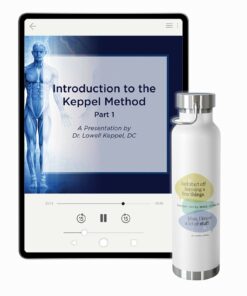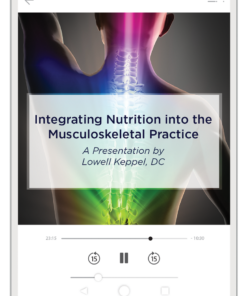Here we are, NEW YEAR’S! It’s a time of ending and beginning as we say goodbye to 2021 (though most may say good riddance) and move on to 2022. (Lord, this year has got to be better!) We humans often look forward to change—be it a change of attitude, behavior, or circumstance. To mark this time of starting over, our chance at creating a new reality, we make New Year’s resolutions promising a change.
The history of New Year’s resolutions can be traced back to the ancient Babylonians some 4,000 years ago. The start of their year came with the planting of new crops in mid-March (as we know the calendar today). Celebrations included a 12-day religious festival called Akitu, during which they would crown a new king or reaffirm their loyalty to the reigning king. But perhaps what most closely echoes our New Year’s resolutions of today was the idea of starting over with a clean slate by making promises to the gods to repay debts and return borrowed objects.
It was around 46 BC that Julius Caesar changed the calendar to establish January 1 as the beginning of a new year. This was to honor the two-faced god Janus, who symbolically looked backwards to the year that was and forward to the year yet to come.
Centuries later, the first day of the new year became significant for early Christians as well. The time was set aside to think upon one’s past mistakes and resolve to do better in the future. In 1740, John Wesley, reformist and founder of Methodism, adapted the Covenant Renewal Service, commonly held on New Year’s Eve or New Year’s Day, for the purpose of the renewal of the Christian’s covenant with God.
Today, we make resolutions that are more often promises to ourselves than to any gods. But why do we make these self-sacred promises only to fail to keep them again and again?
When I asked my daughter Rachel and her husband Nick what they think of New Year’s resolutions, their answers became the inspiration for this blog post. “I think people set good intentions but fail to follow through,” Rachel replied. Nick added, “People set their expectations too high. Maybe they should break them down into more attainable goals.”
I agree with their statements. Why do we set such lofty intentions only to let them all slip away? Next year we find ourselves in the same position as the year before, and before, and before.
From my experience it boils down to two things. First, the change you desire must benefit you more than your current behavior. And second, when we apply gratitude (gratitude = thankfulness), we enhance the first goal (that the change must be more desirable than the current behavior). If you focus on these two things, you will be more successful in getting the changes you want.
I learned from my mentor Dr. Scott Walker (developer of the chiropractic practice known as Neuro-Emotional Technique) that when dealing with an addiction you must make the new behavior more desirable than the addiction. And news alert—we are all addicted to our current way of being. The question is, can you (or are you willing to) trust that the new desirable behavior—the new way of being that you seek—really is more desirable than the old behavior? Whether it’s smoking, excessive weight, lack of exercise, or whatever else your issue may be, can you find more pleasure and satisfaction by changing these behaviors?
If you can find inspiration and focus on the benefit of making the changes, it becomes easier to make them. You are moving toward what you desire. You may have noticed that when you want something in life, I mean really want it, you find a way to get it! There’s nothing you can’t do if you truly want it bad enough.
How does gratitude fit in? If you’re thankful for the changes the new behavior brings, whether it’s being smoke free, living at a healthy weight, or finding the ability to move and exercise, you will find more joy and happiness in your life. Otherwise, you may only see the unhappiness and fail to recognize what is joyous, even though it is always there. We all have moments of pleasure and joy.
Personally, my life changed when I began to practice gratitude. If I find myself in a situation that isn’t desirable, I only need to thank God for the joy and good things I can find in that situation, and things will start changing for the better. As an example, instead of worrying about debts I owed, I started being thankful for what money I did have to pay my bills and for whatever amount I had leftover. I then took another step and was thankful for the abundance! Instead of concentrating on my discomfort if I was sick, I showed gratitude for any time I felt good and energetic. Sometimes it’s a stretch—like well at least my foot doesn’t hurt—but that’s a start!
Okay naysayers, I hear you out there. Let’s look at some research on how gratitude changes you and your brain. In one study of adult college students seeking counseling for depression and anxiety, participants were divided into three groups. Group 1 was instructed to write one letter of gratitude to another person each week for three weeks. Group 2 was asked to write about their deepest thoughts and feelings regarding negative experiences. Group 3 did not do any writing. All groups received counseling sessions.
Results? Yep, you guessed it. At 4 weeks and 12 weeks, Group 1 reported significantly better mental health than the other two groups. This study also revealed that practicing gratitude has lasting effects on the brain.
Changing the way we think is a great start, but giving our bodies the proper nutrients to help maintain changes in our lifestyle is a must. You can enhance the positive results of gratitude by supporting your body with Standard Process and MediHerb products. You see, it’s difficult if not impossible to change your way of being if you’re malnourished and toxic. I recommend you do a complete nutritional work up on your patients— and get one for yourself. (Make sure it’s performed by someone other than you!) You can use the Standard Process Systems Survey and the Toxicity Questionnaire.
I also recommend the following products for brain support:
- Neuroplex
- Hypothalmex
- Rhodiola and Ginseng Complex or Rhodiola and Schisandra (both from MediHerb)
Let me start this off by sharing what I am grateful for. I am happy and grateful for you, Standard Process West, Selene River Press, the wisdom of Dr. Royal Lee, my family and friends, and of course, the abundance I enjoy every day.
Happy 2022! Together, let’s make a difference. And as always, RESULTS REFER!
Images from iStock/vladans (main), SIphotography (man holding cigarette), natalie_board (notebook and pen), Cn0ra (2022 sign).





